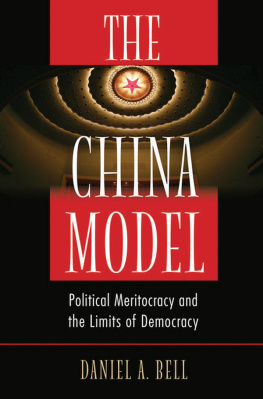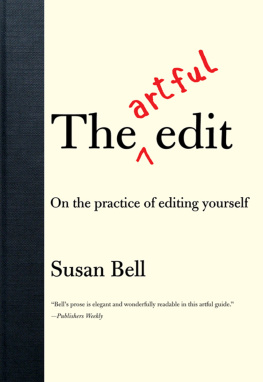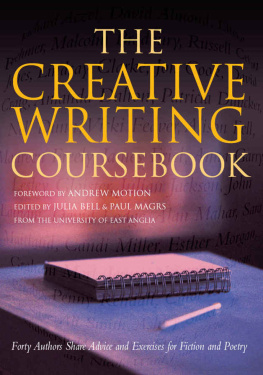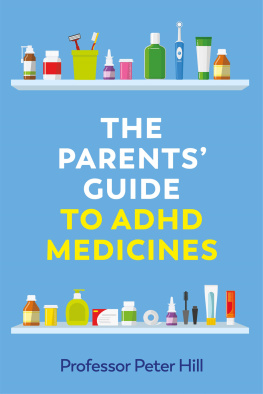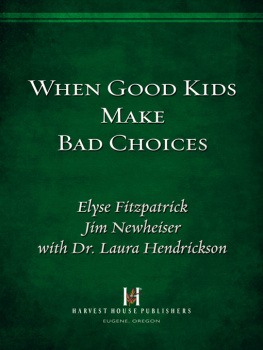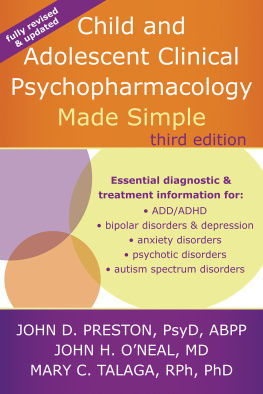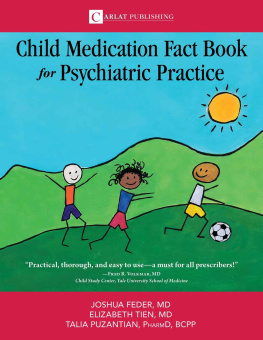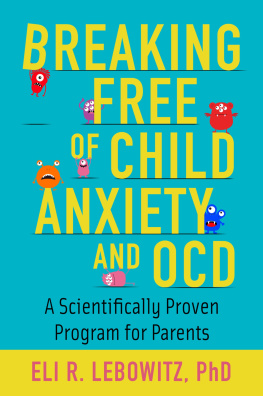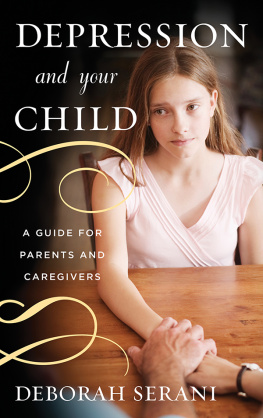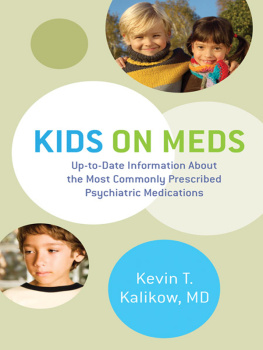Childrens Medicines
A JOHNS HOPKINS PRESS HEALTH BOOK
Childrens Medicines
WHAT EVERY PARENT, GRANDPARENT, AND TEACHER NEEDS TO KNOW
Edward A. Bell, PharmD, BCPS

Note to the Reader: This book is not meant to substitute for medical care, and treatment should not be based solely on its contents. Instead, treatment must be developed in a dialogue between the individual and his or her physician. Our book has been written to help with that dialogue.
Drug dosage: The author and publisher have made reasonable efforts to determine that the selection of drugs discussed in this text conform to the practices of the general medical community. The medications described do not necessarily have specific approval by the US Food and Drug Administration for use in the diseases for which they are recommended. In view of ongoing research, changes in governmental regulation, and the constant flow of information relating to drug therapy and drug reactions, the reader is urged to check the package insert of each drug for any change in indications and dosage and for warnings and precautions. This is particularly important when the recommended agent is a new and/or infrequently used drug.
2017 Edward A. Bell
All rights reserved. Published 2017
Printed in the United States of America on acid-free paper
9 8 7 6 5 4 3 2 1
Johns Hopkins University Press
2715 North Charles Street
Baltimore, Maryland 21218-4363
www.press.jhu.edu
An earlier version of this book was published as A Parents Guide to Childrens Medicines ( 2012 Edward A. Bell).
Library of Congress Cataloging-in-Publication Data
Names: Bell, Edward A., 1959 author.
Title: Childrens medicines : what every parent, grandparent, and teacher needs to know / Edward A. Bell, PharmD, BCPS.
Description: Baltimore : Johns Hopkins University Press, 2017. | Includes bibliographical references and index.
Identifiers: LCCN 2017007354| ISBN 9781421423746 (hardcover : alk. paper) | ISBN 142142374X (hardcover : alk. paper) | ISBN 9781421423753 (pbk. : alk. paper) | ISBN 1421423758 (pbk. : alk. paper) | ISBN 9781421423760 (electronic) | ISBN 1421423766 (electronic)
Subjects: LCSH: Pediatric pharmacologyPopular works. | DrugsPopular works.
Classification: LCC RJ560 .B44 2017 | DDC 615.1083dc23 LC record available at https://lccn.loc.gov/2017007354
A catalog record for this book is available from the British Library.
Special discounts are available for bulk purchases of this book. For more information, please contact Special Sales at 410-516-6936 or .
Johns Hopkins University Press uses environmentally friendly book materials, including recycled text paper that is composed of at least 30 percent post-consumer waste, whenever possible.
Preface
Parents and other caregivers have many decisions to make on behalf of their children. A decision that comes up often, especially early in childhood or for children who have chronic illnesses, is whether the child would benefit from a medicinea prescription medicine, an over-the-counter medicine product, or perhaps an alternative therapy, such as an herbal medicine. Most often, these medicines are recommended by your childs pediatrician or family doctor, a nurse practitioner provider, or another health care provider. At other times, you may be wondering whether to treat your child with an over-the-counter product or an alternative medicine. Are these medicines safe for your infant or child? Are they likely to be effective and to help your child? When is it best not to give a medicine to your child? Another common question is about pediatric vaccines: are they safe, and are they still necessary? All parents share these concerns.
With so much medical information easily available to the public, whether by drug advertisements on television or Internet sites, answering these questions to your own satisfaction can be a daunting job. It is easy for parents to get confused when faced with these decisions and the abundance of sometimes conflicting available information. It is my hope that this book will help you answer some of these questions and assist you in feeling more comfortable making decisions on the role and use of medicines and other therapies for your child and family. There are many good books written by pediatricians that are currently available on pediatric health and medical topics. Childrens Medicines is not meant to replace these booksit can supplement them by providing additional drug therapy information. The information in this book is presented and described in a pharmacy frame of referencethe subjects discussed include practical points relating to questions about medicines to ask your pediatrician and pharmacist, and how to most appropriately use many specific pediatric prescription and over-the-counter drug products to improve your childs health.
Childrens Medicines discusses the science behind safe and effective medicine use in infants, children, and adolescents, and additionally gives practical advice and recommendations on how best to give medicines to your child. I have prepared this book as a pediatric pharmacist, from experiences gained in hospital and clinic settings, and as a university professor and a parent. The topics and information contained in this book I have frequently researched in preparation for the classes on pediatric drug therapy I teach to pharmacy students, and for the regularly published drug therapy column that I write for a national pediatric medical news journal. It is my intent to provide you with scientifically up-to-date and accurate information on medicines and alternative therapy products that may be helpful to your familys health and well-being. Practical tips and recommendations are additionally presented that can help you choose, obtain, and administer the most appropriate and best medicine for your family.
This book would not have been possible without the support and advice from the following, whom I thank:
My wife and children, for their love and support.
The College of Pharmacy and Health Sciences of Drake University, for granting me sabbatical leave and the time to write this book.
The health care professionals of Blank Childrens Hospital and Clinics.
The following individuals, for providing valuable advice and content review:
Dr. Wendi Harris, pediatrician reviewer, Clive, Iowa
Dr. Ken Cheyne, pediatrician reviewer, Clive, Iowa
Dr. Lynne Maxwell, Philadelphia, Pennsylvania
The publishing staff of Johns Hopkins University Press.
Childrens Medicines
1
The Science of Medicines for Children
Children are not small adults and children are therapeutic orphans. These two phrases, coined over 50 years ago, still ring true today in regard to the use of medications in pediatric medicine. When treating medical conditions, physicians know that infants, young children, and even adolescents may not respond the same way as an adult would to an administered medication, and often the safety and efficacy of a drug have not been tested in this population.
Years ago, doses of medicines given to infants and children were often crudely estimated (extrapolated) by comparing them to an adult medicine dose and a typical adults weight or body size. For some medicines, this still occurs today. For example, a 3-year-old childs weight may be approximately 25 percent of a typical adults weight, and thus the child is given 25 percent of the adult dose of a medicine. Over the past 50+ years, we have learned much more about how medicines behave, or function, differently in an infant or childs body, as compared to an adults, and how ineffective or dangerous medicine dose extrapolation can be. Drug functioning refers to how medicines are absorbed, distributed, metabolized, and excreted within and from the body. Drug functioning also refers to the drugs mechanism of action, to yield its therapeutic benefits (for example, relief of symptoms or cure of an infection).
Next page


